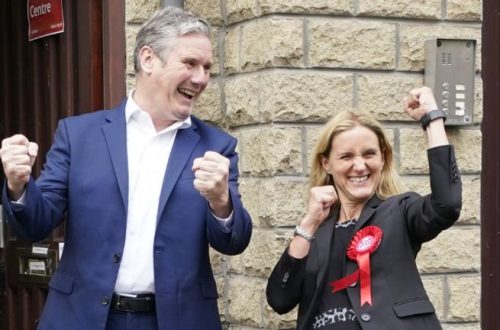Sasha Abramsky, in a recent Open Democracy article, makes two important points about the content and tone of that particular perspective on Al Qaeda and other extreme manifestations of Islamism articulated by the likes of Tariq Ali, Robert Fisk, George Galloway, Naomi Klein, and John Pilger.
The first is an argument familiar to readers of Harry’s Place: that these polemicists fail to engage with, or even grasp, the self-directed nature of extreme Islamist politics, prefering instead to regard it as an adjunct to their own narrow critiques.
Abramsky’s second, related, point is this:
In power, a left that fails to grapple with the challenges facing the open society risks sapping the will of liberal countries to stand up to totalitarian-think. Such a scenario would, in a very profound sense, embody a betrayal of the central Enlightenment tenets nurtured, in fits and starts, for more than two centuries in one or another citadel of pluralism.
Out of power, a left that ignores the magnitude of these threats risks reducing itself to irrelevance, and, in so doing, ceding power to conservatives who will fight their wars on terror in a deeply destructive, dirty way, who will leap upon the opportunity to clamp down on civil liberties and undermine non military, non security-related government spending, and who will use the fear of terror to reshape societies according to their own illiberal sights.
Neither scenario is pretty. Neither bodes well for the future of the universal values of the open society, values that progressives should hold dear.
This is a vital point. There is an important discussion to be had about the nature of those measures which have been taken by Western governments to counter the challenges of a terrorism which eminates from a profoundly anti-liberal political movement. Deep divisions exist on the Left between those who supported the overthrow of the tyrannies of the Taliban in Afghanistan and the Baath Party in Iraq. Those divisions should neither dictate the form of, or eclipse, the argument which needs to be had on the proper limits of state power and the defence of civil liberties. Yet it does.
A relatively trivial, but neatly illustrative issue is the proposed ban on Hizb ut Tahrir. Hizb ut Tahrir has certainly openly incited racial and sectarian violence in the recent past, particularly under the leadership of Omar Bakri Mohammed. It presently advocates the establishing of a political order which would enshrine, constitutionally, a form of gender and religious apartheid. It also holds to a vision of politics which envisages a Manichean struggle between Islam and unbelief which will ultimately result in a “bloody struggle” which will continue to the end of time.
As and when its members incite violence they should be prosecuted.
It is, however, as important to stand up for the right of this party to organise as it is to expose and oppose its racist and totalitarian politics. For Keith Shilson – a regular in the pages of the Socialist Worker newspaper – to organise public meetings in association with Hizb ut Tahrir represents but one of many low points in the recent history of the far left. It dovetails neatly with the Socialist Workers’ Party’s own alliance with the theocratic Muslim Brotherhood, and the funding of the Respect party by a racist and homophobic conspiracy theorist who seeks to “safeguard public decency by preventing any public advocacy for homosexuality“.
But to fail to speak out against Shilson’s suspension by his university and the ban on Hizb ut Tahrir is just as dangerous and, in some ways, worse.
Gene adds: I absolutely agree with david t about Hizb ut Tahrir’s right to free speech. In the same spirit, I hope readers at the universities where Respect Coalition representatives are appearing this month and next will exercise their right to ask why a leading figure in the homophobic Islamic Party of Britain is a candidate, executive member and leading donor for Respect.


